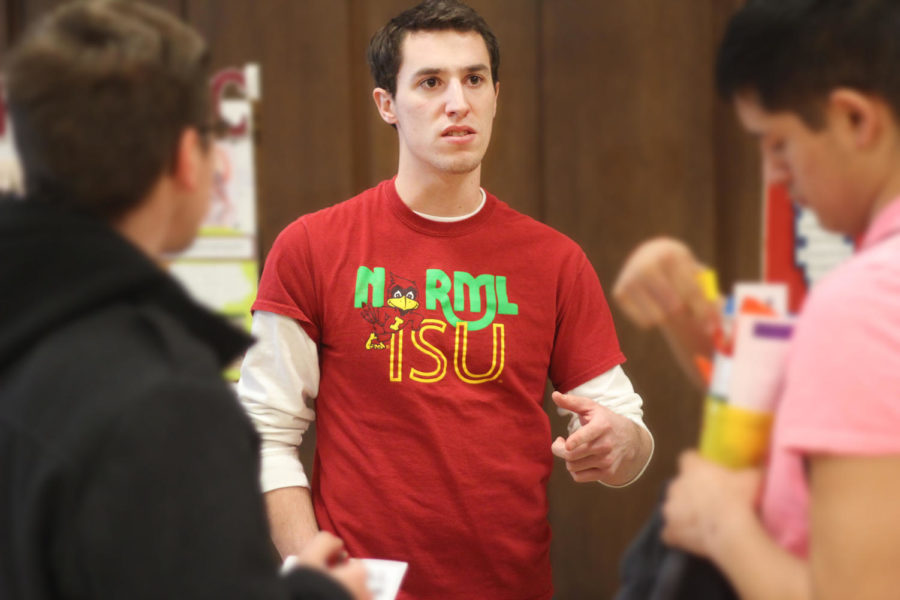NORML ISU seeks legal advice in shirt design denial
April 1, 2014
Iowa State’s NORML is working to to change a trademarking licensing policy that prohibited them from using Iowa State logos on their organization’s shirts.
Iowa State’s chapter of the National Organization for Reforming Marijuana Laws has contacted a freedom of speech watchdog organization called the Foundation for Individual Rights in Education [FIRE] about a recently changed trademark licensing policy. A T-shirt design for NORML was approved by Iowa State’s Trademark Licensing Office in 2012, but the decision was then reversed and the trademark policy was altered.
In a letter written to President Steven Leath, FIRE Program Officer Susan Kruth cited several concerns about the administration’s policies and how they seemed to single out NORML ISU. Among these concerns is the fact that the trademark licensing policy changes came as a result of external pressures from the surrounding community.
“In November 2012, after complaints from legislators and non-university community members, the office rescinded its approval of the shirt, stating that Cy’s image could not be used to promote activities that pose health risks,” Kruth said about Iowa State’s trademark licensing office.
Iowa State’s new policy avoids endorsing “activities that pose health risks,” while the debate about the health risks of cannabis is still largely undefined by the medical community.
NORML ISU’s mission statement as defined on the ISU student organizations page is to “promote a better understanding of the current status of laws concerning cannabis [marijuana] in the state of Iowa, and in the United States at large and the medical, legal, environmental, economic and civil libertarian arguments for more reasonable treatment of cannabis in the laws of the state of Iowa and the United States.”
NORML ISU’s faculty adviser, Associate Professor of Psychology Eric Cooper, expressed his frustration with the decision-making process of ISU administration.
“The administration disapproved a previously approved T-shirt in fall of 2012 just because the shirt had received bad publicity, not because it had violated any rules. The administration subsequently changed the rules for what student groups could put on t-shirts to specifically target some messages and not others,” Cooper said.
When asked why NORML made contact with FIRE, Cooper said that NORML ISU had reached the end of its ability to negotiate with the ISU Trademark Licensing Office and decided to seek legal advice concerning whether or not the new policy is in violation of the first amendment.
“From our perspective, the university is engaging in viewpoint discrimination against the group in order to avoid bad publicity,” Cooper said.
Cooper said that in changing policies to satisfy external complaints ISU administration has “forgotten what the purpose of a university is.”
“Throughout the process, the administration has seemed far more worried about protecting the university from bad publicity than about making ISU a place where ideas can be exchanged freely. The university is supposed to be a place that allows people to express unpopular opinions and debate issues of the day free from outside pressures,” Cooper said.
The final portion of the letter written to President Leath requested that ISU administration issue a response to FIRE’s assertion that NORML ISU’s first amendment rights are being violated in accordance with the new policy.
The original date for which the response was requested by was March 25, but according to Will Creeley, FIRE’s Director of Legal and Public Advocacy, ISU administration has requested and been allowed an extension of the response date to April 25..







